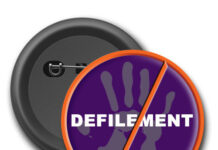Safety experts recently held a 2-Day virtual training for parents on Parental Ethics, Patterns, Requirements and Approaches for a Successful Sex Education.
The meeting organized by Hope Christopher, a child safety advocate/ personal development coach and Tessy U. Ozobialu, social worker and child protection advocate, was said to be an empowerment for parents to know different ways to make children understand sex education better.
During her session, Hope Christopher said majority of African parents believe that the best way to prevent a child from sexual immorality is by keeping them in complete ignorance of what the overall meaning is, saying that this perception which has been going for decades, has actually thrown children into the hands of perpetrators, destroyed homes and caused hazards in homes.
why-fainting-may-not-save-father-who-defiled-own-daughter
Christopher emphasised on how in many homes sexual education is seen as a taboo and how parents shy away from certain activities that would have groomed the child and prevented him from becoming a predator or paedophile or engaging in sexual abuse. Adding that if sex education is put in place, there wouldn’t be daily occurrence of child sexual abuse.
Christopher pointed out that attitude in communicating or informing a child is something parents should consciously prepare for, and must also follow some etiquette, approaches and right modelling for proper education. She added that parents should have the ability to be great teachers to the child, see beyond present defects but should see positive and focused result.
She encouraged parents to bond with their children, adding, “A child you don’t bond with, you can’t teach and you can’t impart. Bonding helps you to have access to their uniqueness, it helps you know your child very well. Without the right parental patterns, you might end up misusing the process of sex education”. she said.
According to a report by UNESCO, Sexuality education has positive effects, including increasing young people’s knowledge and improving their attitudes related to sexual and reproductive health and behaviors.

















